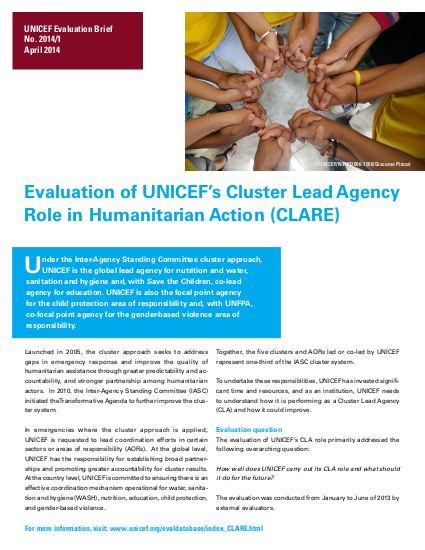
Under the Inter-Agency Standing Committee cluster approach, UNICEF is the global lead agency for nutrition and water, sanitation and hygiene and, with Save the Children, co-lead agency for education. UNICEF is also the focal point agency for the child protection area of responsibility and, with UNFPA, co-focal point agency for the gender-based violence area of responsibility.
Launched in 2005, the cluster approach seeks to address gaps in emergency response and improve the quality of humanitarian assistance through greater predictability and accountability, and stronger partnership among humanitarian actors. In 2010, the Inter-Agency Standing Committee (IASC)initiated the Transformative Agenda to further improve the cluster system. In emergencies where the cluster approach is applied, UNICEF is requested to lead coordination efforts in certain sectors or areas of responsibility (AORs). At the global level, UNICEF has the responsibility for establishing broad partnerships and promoting greater accountability for cluster results. At the country level, UNICEF is committed to ensuring there is an effective coordination mechanism operational for water, sanitation and hygiene (WASH), nutrition, education, child protection, and gender-based violence. Together, the five clusters and AORs led or co-led by UNICEF represent one-third of the IASC cluster system. To undertake these responsibilities, UNICEF has invested significant time and resources, and as an institution, UNICEF needs to understand how it is performing as a Cluster Lead Agency(CLA) and how it could improve.